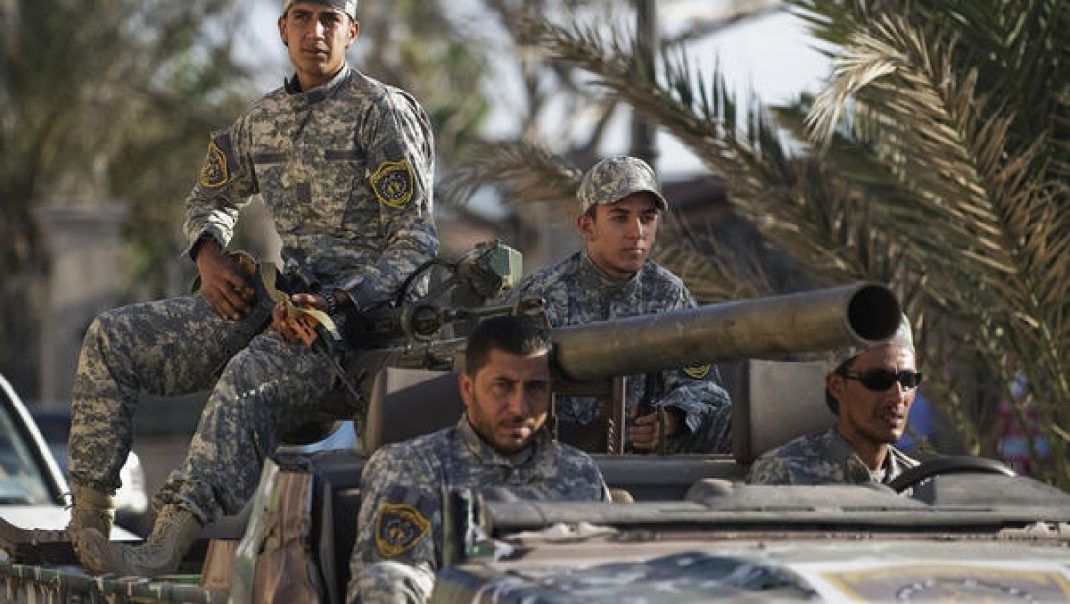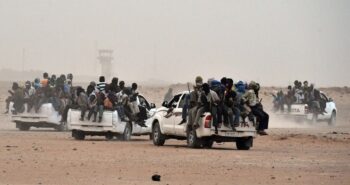Sami Zaptia

The brief but disturbing central Tripoli clashes on Thursday led to no deaths or injuries of either state-recognised militiamen or innocent civilians. However, their spontaneity in the presence of hordes of families with children celebrating on the second day of Eid at parks, gardens, funfairs, and seaside promenades led to much angst. Families were sent scurrying for safety as overhead gunfire led to panicked rush for cover.
For what it’s worth, the clashes were between pro Support and Stability militias led by Ghnewa Al-Kikli and pro Deterrence Force militias led by Abdel Rauf Kara. Sources informed Libya Herald that neither leader knew anything about the clashes which were very localised if not on an individual level and spontaneous after one side arrested members of the others. The clashes were quickly ended by the leadership. But the damage had been done.
Media reports of clashes have far greater negative international effects
They media effect of the very localised clashes was global – a point neither militia members nor their leaders seem to fully understand. The world watches every incident and reacts accordingly in terms of the lack of return of flights (ICAO), reopening of embassies, official travel advice to Libya and return of companies.
Frequent, spontaneous militia clashes
UNSMIL rightly condemned this frequent use of violence as a means of resolving militia disputes, endangering the safety of civilians. It also rightly undermines the fragile security situation in Libya sending a negative message to security companies responsible for drafting reports on the security status quo in Libya.
Weak central government, no monopoly on use of force
Libya’s militias know that the central government is very weak. This is evidenced by the fact that the Aldabaiba Tripoli government abstained from commenting front and centre about the clash. These clashes embarrass the government that constantly claims Libya is safe and security is good to international companies and embassies. They also exposes and prove its weakness.
Militias are unaccountable
The militias are willing and able to repeat their clashes because they can – with impunity. The Tripoli government is unable to control or confront them. They play on the fact that the government wants security and stability – or a false veneer of security and stability – and confrontation would lead to injuries and deaths. In effect, they blackmail the government who would be held responsible for any insecurity or instability. The government could be changed but the militias would most likely remain. The militias are totally unaccountable.
International community insincere
UNSMIL stressed the need to hold ‘‘those responsible’’ (the state-recognised militias) to account. But that is insincere. UNSMIL and the international community it represents knows very well the Tripoli government is unable to hold the militias that prop it up accountable.
Tripoli militias prop up Tripoli government
The state recognised militias prop up and allow the Tripoli government to exist and survive. It exists at their behest. As long as their interests coincide, the militias allow the Tripoli government to continue and play at being a sovereign government and in control. There exists a mutual benefit. The unelected Tripoli government wants to stay in power for as long as possible. It is interested in short term stability – or the perception of stability.
No one in power wants elections
The militias want to stay in power. They, in effect, scratch each other’s backs. Neither can exist without the other or can remove the other. The militias need the state’s recognition and official funding. The Tripoli government tries to buy stability by bribing them with funds. All this is at the interest of the ordinary civilians. The militias and government gain power, influence and wealth at the expense of the ordinary civilian who is unable to remove them. All those in power wish to maintain the status quo.
The high principles that the Qaddafi regime was allegedly jettisoned for in the February 2011 revolution have been pushed aside.
Chronic insecurity, lack of elections
In contrast to the Tripoli government, UNSMIL said Tripoli has ‘‘chronic insecurity’’. In its assessment it put this to the ‘‘continuing political crisis and the erosion of institutional legitimacy’’. It deems the lack of renewed legitimacy and mandate due to the unelected Tripoli government of Abd Alhamid Aldabaiba.
“It serves as a reminder of Libya’s need to prioritize holding elections in order to establish legitimate governing bodies capable of extending state authority and upholding the rule of law.”, UNSMIL concluded in its statement.
But the international community is unwilling or unable to coerce the Tripoli government and the capital’s militias (as well as Hafter and Ageela Saleh) into holding elections. The international community plays lip service to calling for elections – but are probably happy with the status quo of relative stability.
_______________





